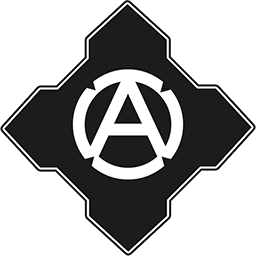1 мая в Минске группой неизвестных была совершена атака на отделение «Беларусьбанк».
Участники акции считают институт банка паразитом, смысл которого заключается в выкачивании денег из трудового народа путем спекуляций и ростовщичества. Богатые богатеют — бедные беднеют.
Видео:


RadicalAnarchyst — Отличная идея, спали МакДак! Лучше сразу с посетителями, персоналом и т.д. — чего мелочится? Вот это будет радикально!
Ребята, это великолепно!..
у меня просто нет слов! продолжайте дальше в таком же духе и не останавливайтесь ни перед чем!
P.S. А как насчёт того, что бы МакДак спалить?! =)
чшир — У тебя замечательные идеи. Желаем тебе удачи в действиях!
By personifying the class enemy as the archaic image of the rich banker (or more abstractly, �international banking interests�), anarchists end up accepting the «anti-capitalist» thesis of National Socialism (that society is dominated by finance capital), adding only a nominal denouncement of its racist or anti-semitic conclusions.
Banks are not the «face of capitalism». On a day to day level, banks do not have the parasitic or exploitative quality of a pawn shop or check cashing business, neither of which are being attacked. My small paycheck is deposited at a bank, I can take money out of an ATM. I pay for groceries with a debit card. It doesn’t make sense to me to direct my anger there anymore than some other random business. For people who make mortgage payments the bank acts as a landlord of sorts, but I can only imagine that most people out there breaking bank windows do not own homes.
So, if attacks on banks are not the expression of self-interest or personal rage, why do anarchists focus on banks?
1) The reduction of anti-capitalist critique to the circulation of money, a circulation that is viewed as the fundamental basis for the economy. Banks are the easily visible representation of this circulation, even if individual commercial bank branches are inconsequential to the financial system.
Against this fixation on circulation, I reply that the fundamental basis for the economy is the production of commodities, the extraction of surplus value, the exploitation of human labor.
2) Adding momentum to anti-bank populism that is being pushed across the political spectrum in response to the economic crisis. You can turn on a television program or radio show about the crisis and hear commentators blaming the crisis on «greedy bankers», «wall street speculators» and the like. Gruppe Krisis in Germany compared this dialogue to a modern-day «stab in the back» myth. Why would anarchists want to play into this populist message? On the one hand it just isn’t true: finance is not solely responsible for the current crisis. Beyond that, this populism anarchists are giving muscle and militancy to serves interests that are at odds with any project of liberation.
3) Following the herd. For a long time, one of the main images being projected by insurrectionary anarchists was of Greek anarchists «bombing banks» (damaging ATM machines with crude explosives made from camping stoves). This militant image of the anonymous hero in a skimask clearly inspired copycat action by other up-and-coming militants, spreading their images on blogs and internet videos in a self-referential game of spectators and action figures that ironically is organized along national lines. There is a blog for every country with an insurrectionist milieu.
http://salon.lettersjournal.org/viewtopic.php?id=554
террор не должен становиться пропагандистской тактикой. чтобы даже не говорили некоторые повстанцы, террор – это практика коммуны. совершая повстанческий акт, прореволюционер приобщается к подлинному человеческому сообществу — коммунизму, также как в случае с низовой борьбой на своем рабочем месте или в акте любви. эти практики не приведут к революции – тащемта никакие практики не приведут к революции, революция создается объективным факторами. с другой стороны, мы должны всегда помнить, что эти практики могут реформироваться в реформистскую деятельность: низовая борьба может институализоваться (через легализм и бюрократию) в профсоюзное движение, а террор через механизмы спектакля — в терроризм. специфические условия повстанческой деятельности (конспирация) подразумевают отделение себя от остальной массы людей, и спектакль может играть на этом разделении: просматривая этот ролик на ютубе параллельно с чтением вконтактика, сторонний человек становиться пассивным созерцателем зрелища, революционный месседж вливается в общий поток медиа и теряет свое подрывное содержание («выходи на улицу!»). анархисты должны перестать снимать свои действия на камеру.
Ребята, я бы пожал вам руку, если бы мог. Акция что надо!